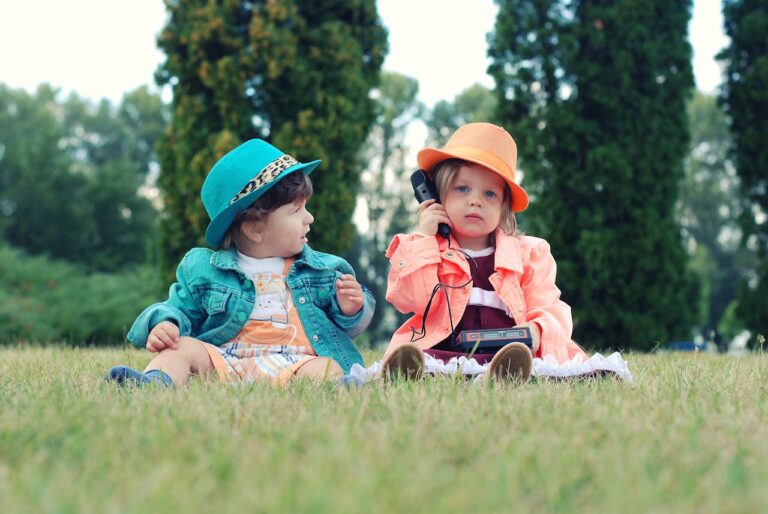Have you ever wondered why some people seem to connect effortlessly with others, while others struggle to maintain healthy bonds? Much of the answer lies in our early years. Childhood experiences play a pivotal role in moulding how we perceive, build, and sustain relationships later in life.
This blog explores how these formative years influence adult relationships, focusing on insights for parents, educators, and mental health professionals. Together, we’ll uncover how to nurture positive experiences that help children grow into adults capable of forming healthy and meaningful connections.
Childhood Development and Relationship Building
Our childhood relationships lay the foundation for how we interact with others throughout life. Early interactions—between a child and their parents, caregivers, or siblings—establish critical patterns that shape future behaviour and emotional responses.
The Science Behind Attachment Styles
Attachment theory, developed by psychologist John Bowlby, reveals that early relationships with caregivers form the blueprint for adult relational styles. There are four primary attachment styles:
- Secure Attachment:
- Children with consistent and responsive caregivers learn that they can trust others.
- Adults with secure attachments often maintain healthy, balanced relationships.
- Avoidant Attachment:
- When caregivers are emotionally distant, children may suppress emotional needs.
- This can lead to difficulties in forming deep connections as adults.
- Anxious Attachment:
- Children with inconsistent caregiving may develop anxiety about being abandoned.
- This manifests in adults who seek constant validation and cling to relationships.
- Disorganized Attachment:
- Caregivers who are neglectful or abusive can lead children to distrust relationships altogether.
- Adults with this style may struggle with intimacy and vulnerability.
By understanding these attachment styles, we can see how early experiences create a ripple effect that influences personal relationships, professional dynamics, and even parenting styles in adulthood.
Family Dynamics and Their Role
Family dynamics are another powerful force shaping relationship patterns. A child raised in a supportive, communicative family is more likely to develop positive relational habits, while unhealthy family environments can have lasting negative effects.
Parenting Styles
Parenting styles significantly impact how children learn to communicate and connect. Research identifies four key parenting styles:
- Authoritative Parenting (balanced, supportive, and structured): Leads to emotionally intelligent and adaptable adults.
- Authoritarian Parenting (strict and controlling): This may result in adults who struggle with self-esteem and autonomy.
- Permissive Parenting (indulgent and lenient): This can create adults who lack boundaries and responsibility.
- Neglectful Parenting (uninvolved and dismissive): Often results in difficulty forming trust and connection.
Communication Within the Family
Healthy communication fosters understanding, empathy, and problem-solving skills. Families that promote open dialogue—where everyone’s voice is valued—tend to raise children who are emotionally secure and resilient. On the other hand, family environments marked by conflict or silence may lead to relational difficulties, as children learn maladaptive ways to process their emotions.
The Role of Educators and Mental Health Professionals
Parents aren’t the only ones responsible for shaping how children view relationships. Educators and mental health professionals play essential roles in helping children develop the skills they need to connect with others.
Educators as Role Models
Teachers spend a significant amount of time with children and can model positive behaviours such as empathy, active listening, and conflict resolution. Activities like team projects, group discussions, and social-emotional learning help foster interpersonal skills.
Mental Health Interventions
Mental health professionals can help identify early attachment or relational challenges and implement interventions to address these issues. For example:
- Therapy Groups for children that promote peer interaction and emotional expression.
- Parenting Workshops to guide parents on how to foster secure attachment and healthy communication.
- School Counseling Programs to create supportive environments for emotional growth.
Nurturing Positive Childhood Experiences
The good news is that parents and caregivers can take practical steps to create nurturing environments for children. By fostering safe, loving, and consistent experiences, you can set the stage for strong relationship-building skills.
Tips for Parents and Caregivers
- Consistent Emotional Support:
- Be available to listen, empathize, and validate your child’s feelings.
- Create a safe space where they feel understood and valued.
- Teach Healthy Boundaries:
- Show your child how to establish and respect boundaries in relationships.
- Model Constructive Conflict Resolution:
- Disagreements are inevitable. Teach your child how to handle conflicts calmly and effectively.
- Encourage Open Communication:
- Regularly check in with your child. Ask about their day, feelings, and thoughts.
- Expose Them to Diverse Relationships:
- Help them build relationships with peers and mentors from diverse backgrounds, fostering adaptability and inclusion.
- Praise Effort, Not Just Achievement:
- Reward emotional intelligence by celebrating acts of kindness and empathy.
Case Studies and Real-Life Examples
Stories of personal transformation can illustrate how childhood experiences shape relationships—and how these patterns can be reshaped later in life.
Overcoming a Turbulent Childhood
Take Maria, for example. Raised in an authoritarian household, Maria often felt her emotions were dismissed. This led to an anxious attachment style in adulthood, with fears of abandonment impacting her romantic relationships. Through therapy, Maria learned to reframe her past experiences and develop secure relational behaviours. Today, she maintains healthy bonds with both her partner and friends.
From Neglect to Positive Parenting
Similarly, Jacob grew up in a neglectful environment, leading to avoidant attachment in his friendships and work relationships. After becoming a father, he committed to breaking the cycle by attending parenting classes. By prioritizing open communication and emotional availability, Jacob now provides his children with the secure foundation he never had.
These examples show that, while childhood experiences are impactful, they are not destiny. With the right tools and interventions, people can rewrite their relational stories.
Empower Change for a Brighter Future
Childhood experiences are the seeds from which adult relationships grow. By understanding how attachment, family dynamics, and positive interventions shape relational patterns, we can help children—and ultimately adults—connect in meaningful and fulfilling ways.
Whether you’re a parent, educator, or mental health professional, your role in nurturing healthy relationships is invaluable. Take these insights, apply them, and be the change-maker a child needs. And if you found this blog helpful, please share it with others who might benefit.
Together, we can raise a generation equipped not just to build relationships, but to thrive in them.





















0 Comments